Experts explain why California is still rife with gun violence despite some of the most stringent gun laws in the country
Many of the current laws were enacted within the past several years.
Even the state with some of the strictest gun laws can't keep gun violence away from its borders.
California has some of the most stringent gun laws in the country -- many of which were enacted in response to several of the violent mass shootings in recent years.
But that hasn't stopped a wave of mass shootings from plaguing the state in the first few weeks of 2023.
On Monday, at least seven people were killed in Half Moon Bay, California, just south of San Francisco, after a suspect open fired on two farms in the rural town, according to officials. Hours after the shooting in Half Moon Bay, one person died and seven were injured in Oakland, just east of San Francisco, across the San Francisco Bay.
A shooting that occurred on Saturday at a dance studio in Monterey Park, a suburb of Los Angeles, claimed the lives of 11 people and injured nine more.
The "status quo" even with increasingly severe gun regulations, is not working, Los Angeles County Sheriff Robert Luna told reporters on Sunday evening in response to the Monterey Park shooting.
"California is known for having strict gun laws, but it is not surprising that guns are prevalent in the state," Matthew Lang, a professor of economics at the University of California Riverside who has studied firearms sales, told ABC News.
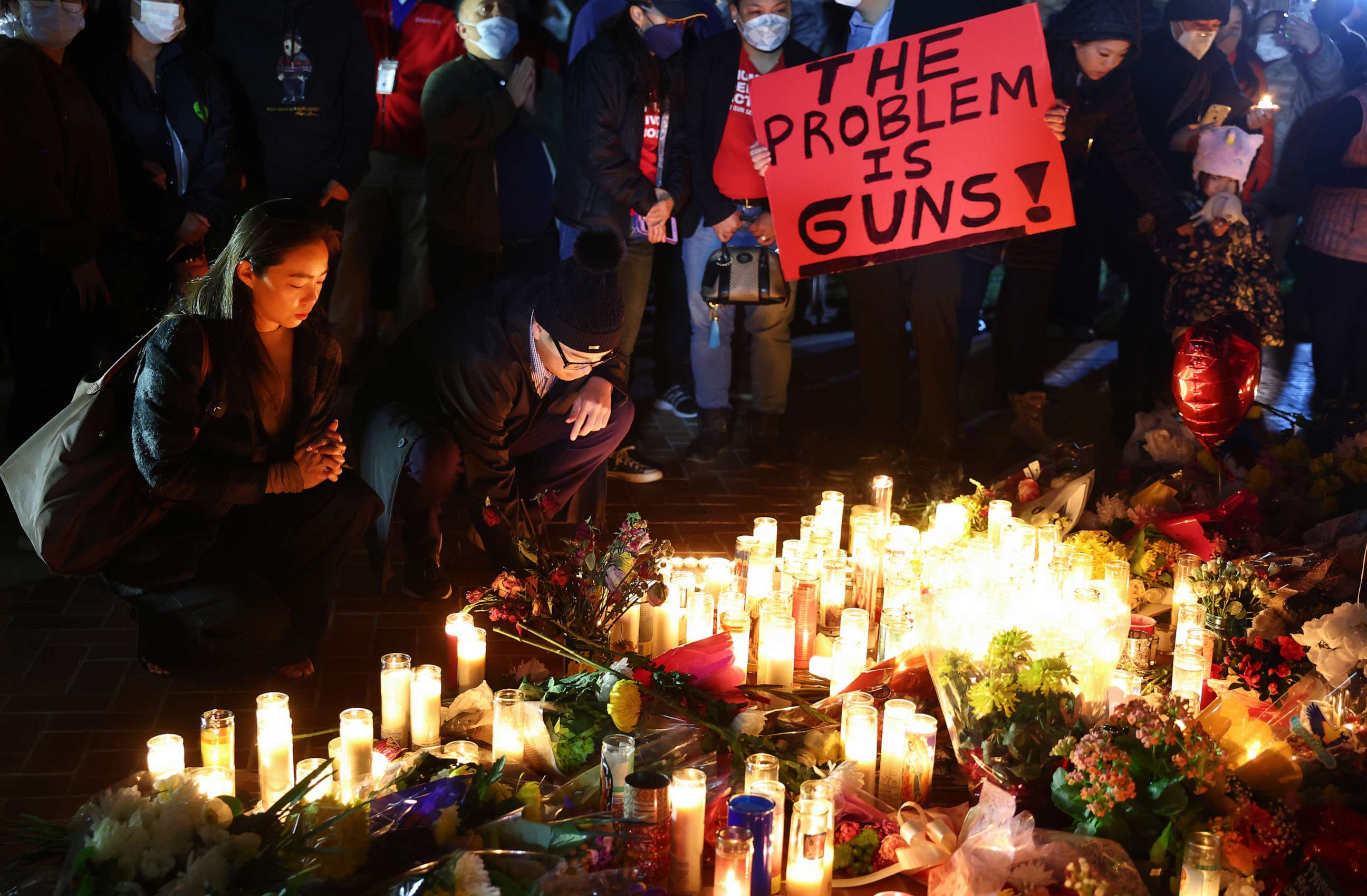
These are the current gun laws in California
California has "led the way" for gun safety regulations, California Gov. Gavin Newsom told reporters on Tuesday in response to the recent shootings. Everytown for Gun Safety ranks California as No. 1 in the country for gun law strength -- as well as the eighth-lowest rate of gun deaths and sixth-lowest gun ownership rate.
In 1989, California passed the Roberti-Roos Assault Weapons Control Act following the killings of five schoolchildren at the Cleveland Elementary School in Stockton that year. The law was nation's first ban on "assault weapons," then a new classification of firearms, which defined them as having characteristics such as a detachable magazine, a flash suppressor, a forward pistol grip and a thumbhole stock. The state has continually updated the law, the current iteration of which is currently the strictest in the country.
In 2016, Californians passed Proposition 63, which requires background checks for purchasing ammunition and prohibits possession of large capacity magazines. A red flag law also went into effect that year, which prevents certain people from obtaining firearms.
The state employs a licensing system for gun and ammunition purchases, and bans the sale of most handguns that don't have a magazine safety or loaded-chamber indicator. It also requires safe storage of guns, and some cities require liability insurance for gun sellers.
Those seeking to purchase a firearm must pass a written test to obtain a Firearm Safety Certificate and are limited to buying one handgun per month. There is also a 10-day waiting period between applying for and obtaining firearms.
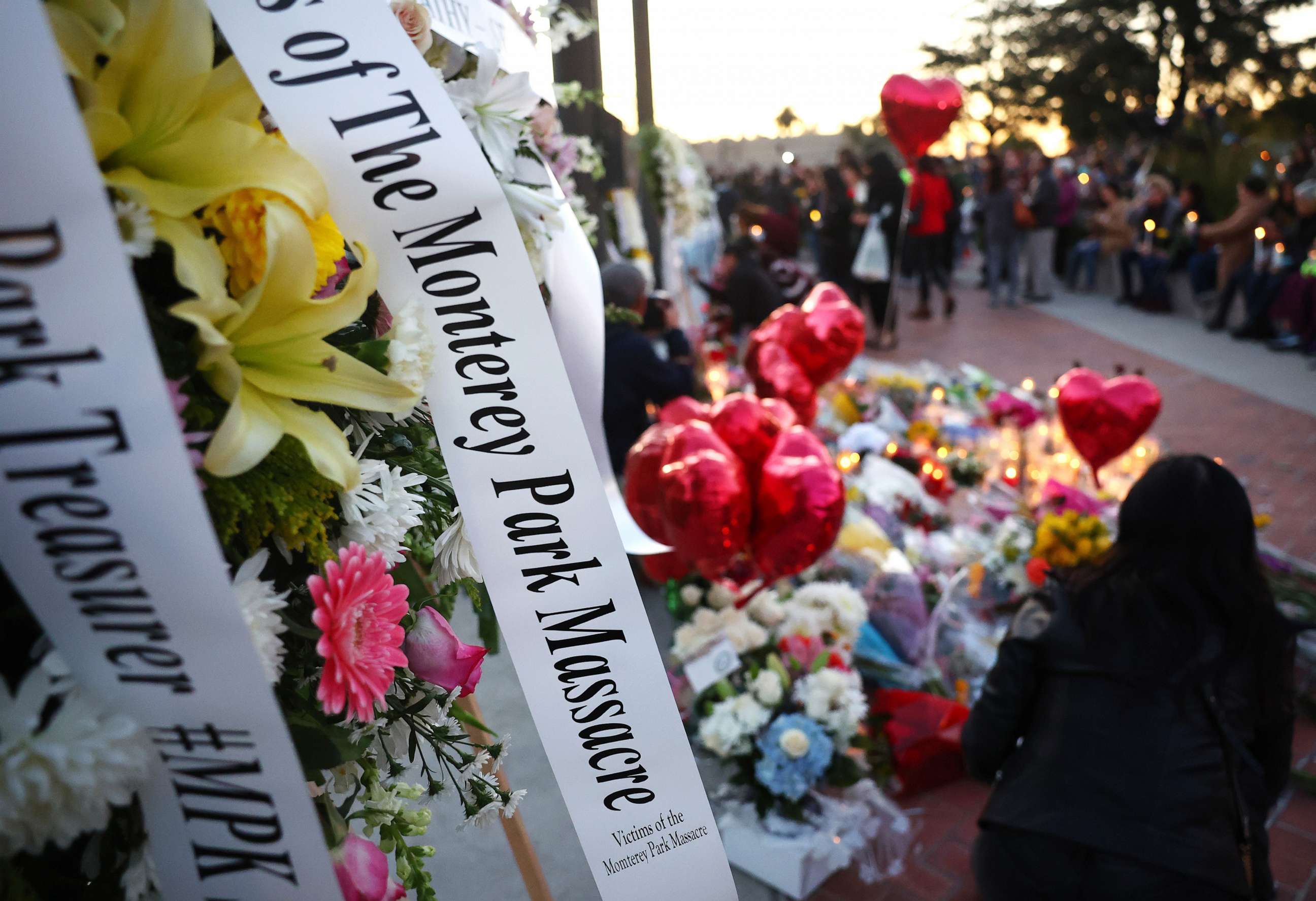
While concealed firearms may be carried in public with a permit, law enforcement can deny approval of permits. The permits are also issued after a background check determines that the applicant is of good moral character, has good cause for requesting the license, completes a firearms safety course and meets the residency requirement.
In addition, the state requires child-safety firearm locks and requires guns to be safely stored in vehicles. Laws in California further prohibit the sale and manufacture of unsafe handguns and regulate ghost guns.
In 2022, in response to the shooting at Robb Elementary School in Uvalde, Texas that killed 19 students and two teachers, Newsom approved a barrage of new legislation, including a law that would raise the minimum age for sales and transfer of firearms and invest state funds to support evidence-based community violence intervention strategies.
While the recent wave of mass shootings in California may appear the severe gun laws aren't working, people are not seeing all of the times they do prevent violence, Dr. Amy Barnhorst, associate director for the California Firearm Violence Research Center at the University of California Davis, told ABC News.
"Unfortunately, firearms in this country are so pervasive that it’s going to take a lot to stop it," Barnhorst said. "The past work of legislation is undoubtedly reducing deaths from firearms."
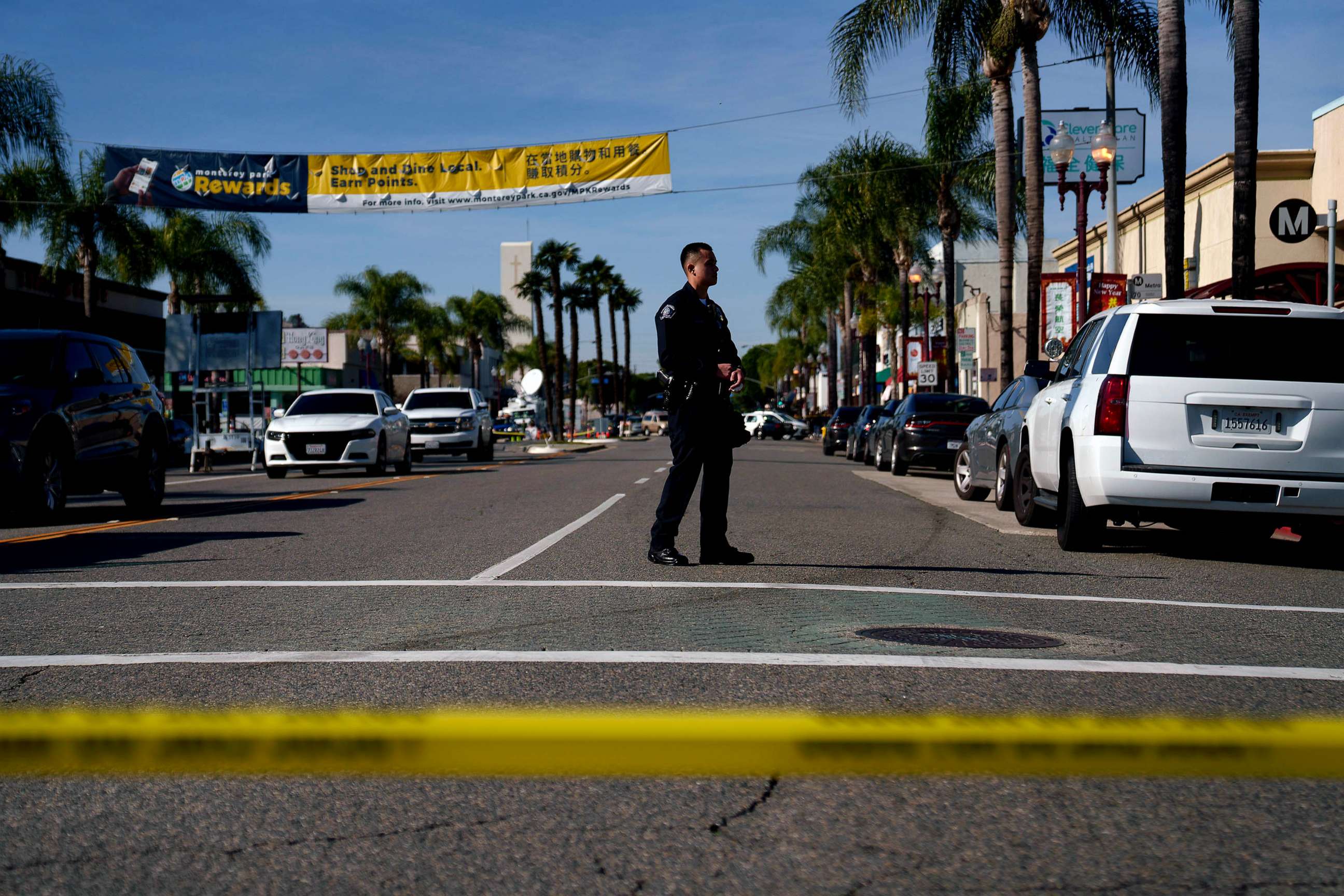
Why California gun laws aren't preventing shootings
There are too many guns in the U.S. to completely prevent gun violence in any given state, the experts said. Gun violence is continuing to affect a large number of Californians, but at much lower rates than other states.
While 3,449 people died from gun violence in California in 2020, the state still has one of the lowest gun death rates in the country at 8.5 deaths per 100,000 people -- about 37% lower than the national average, according to data compiled by the Centers for Disease Control and Prevention.
Gun homicides in California, at a rate of 3.9 per 100,000 people, is much lower than Texas' rate of 6.1 per 100,000 people, figures from Everytown shows.
California's gun laws, while wide-reaching, don't target everyone who is at risk of committing violence, Barnhorst said. For example, California's background checks dig a little deeper than what's available in the federal database, so California will catch more at-risk people than other states.
But, the background checks are not going to catch everyone, especially those without a criminal history, those who have never been psychiatrically hospitalized or who don't meet any of the other criteria for prohibition of owning a gun, she said.
In addition, at-risk purchasers could be answering questions on the background check untruthfully, especially questions regarding substance abuse and mental health problems, Lori Post, director of the Buehler Center for Health Policy and Economics at Northwestern University Feinberg School of Medicine, told ABC News.
"I think it just makes common sense that people willing to commit mass shootings are also willing to lie on background checks," she said.

Despite the rigid requirements, the average citizen is still able to buy a gun in California, Lang said.
"Many people will be able to walk into a store, pass a background check and buy a firearm," Barnhorst said.
A common issue with gun laws is that they often require action by a third party to be effective, "regardless of how stringent they are," Lang said.
For example, red flag laws are an important tool because "they allow intervention to happen before it gets really bad" and puts some power in the hands of ordinary citizens to do something, Barnhorst said.
But, while requests can be made to have a firearm removed from an individual, carrying out this request must go through court proceedings. In addition, someone must take the uncomfortable role of actually making the request and potentially jeopardizing their relationship with the individual they are concerned about, Lang added.
The red flag laws in California are "severely underutilized," California Attorney General Rob Bonta said in a statement on Wednesday.

The federal government needs to step up its gun regulations, critics say
President Joe Biden has reignited his calls for a nation-wide ban on assault rifles following the recent mass shootings in California, urging both chambers of Congress to "act quickly" and deliver the assault weapons ban to his desk.
On Monday, a federal ban on assault weapons, as well as legislation that would raise the minimum purchase age to 21, was introduced by Senators Dianne Feinstein, D-Calif., Richard Blumenthal, D-Conn., and Chris Murphy, D-Conn.
Newsom lambasted Americans, especially the federal government, on Tuesday for not finding ways to prevent mass casualties caused by gun violence in response to the recent mass shootings that took place in his state.
The governor acknowledged that those laws will not save every life and that one state can only do so much, calling on the federal government to do more.
In June, the U.S. Supreme Court threw out several rulings from lower courts that upheld gun restrictions, including a law that banned AR15-style rifles in Maryland, another banning large-capacity ammunition magazines in New Jersey and California and a New York law limiting the concealed carry of handguns in public areas.
"We must provide the public with protection from gun violence and respect the authority of states as they implement common sense gun regulations to safeguard their communities," Bonta said on Wednesday.
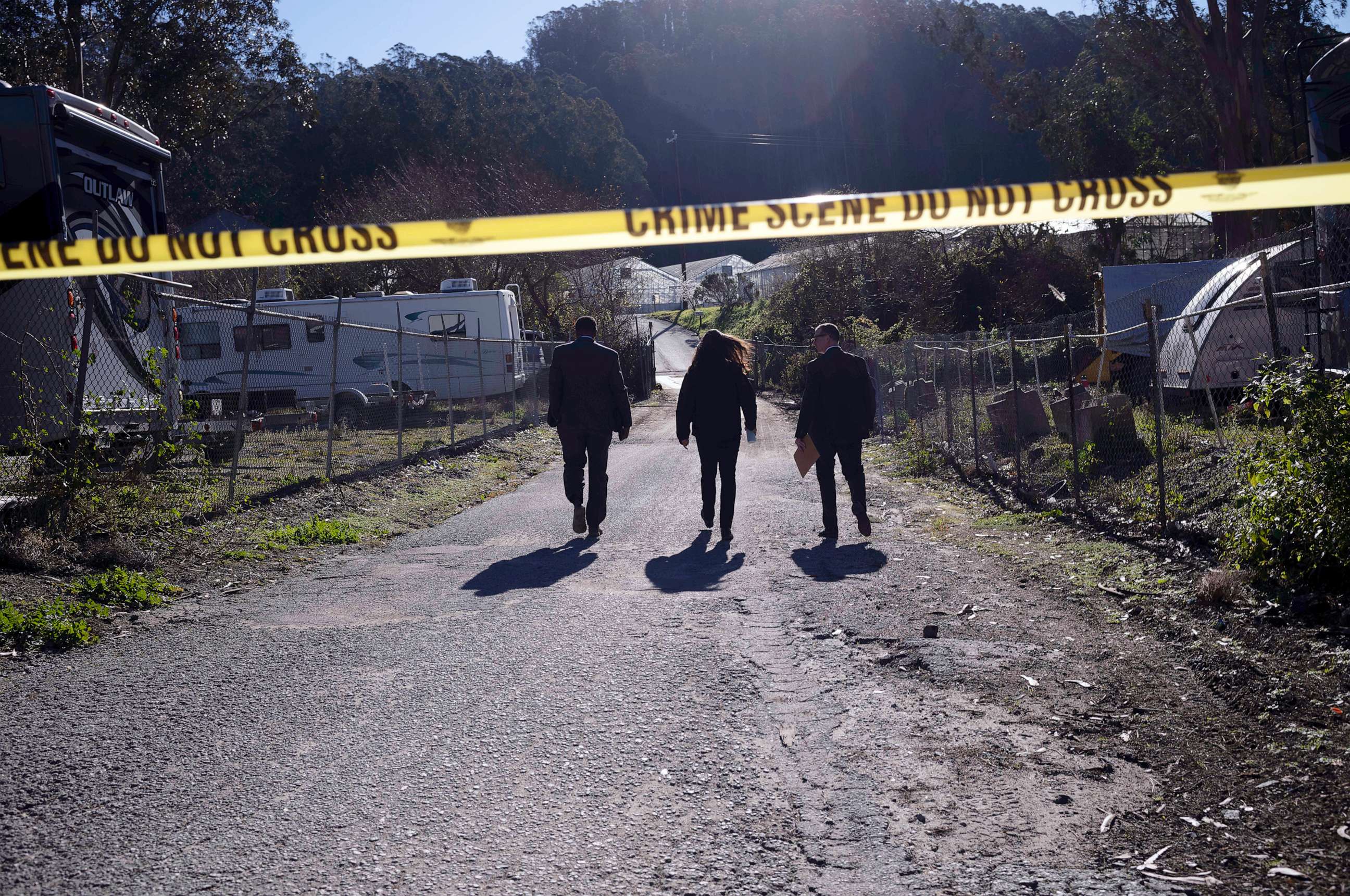
A report published by the University of California Berkeley's Center for Global Healthy Cities in 2021 found that the gun violence reduction program, Advance Peace, helped to decrease firearm homicides and assaults in several California cities, including by almost a quarter in Stockton, which in turn saved taxpayers millions of dollars in city expenses.
Organizations like Sandy Hook Promise, the Violence Policy Center and Everytown called on federal legislators to enact simple policy actions, such as background checks for all gun sales, secure storage, magazine limits for firearms and extreme risk protection orders, which they say have been proven to prevent the loss of life from gun violence.
Evidence-based gun laws work, especially ones that target high-risk people and high-risk moments, Barnhorst said.
"Looking at the data of who tends to perpetrate mass shootings, domestic violence, firearms suicide and then really targeting problem areas, is a better approach than reactively passing legislation," she said.
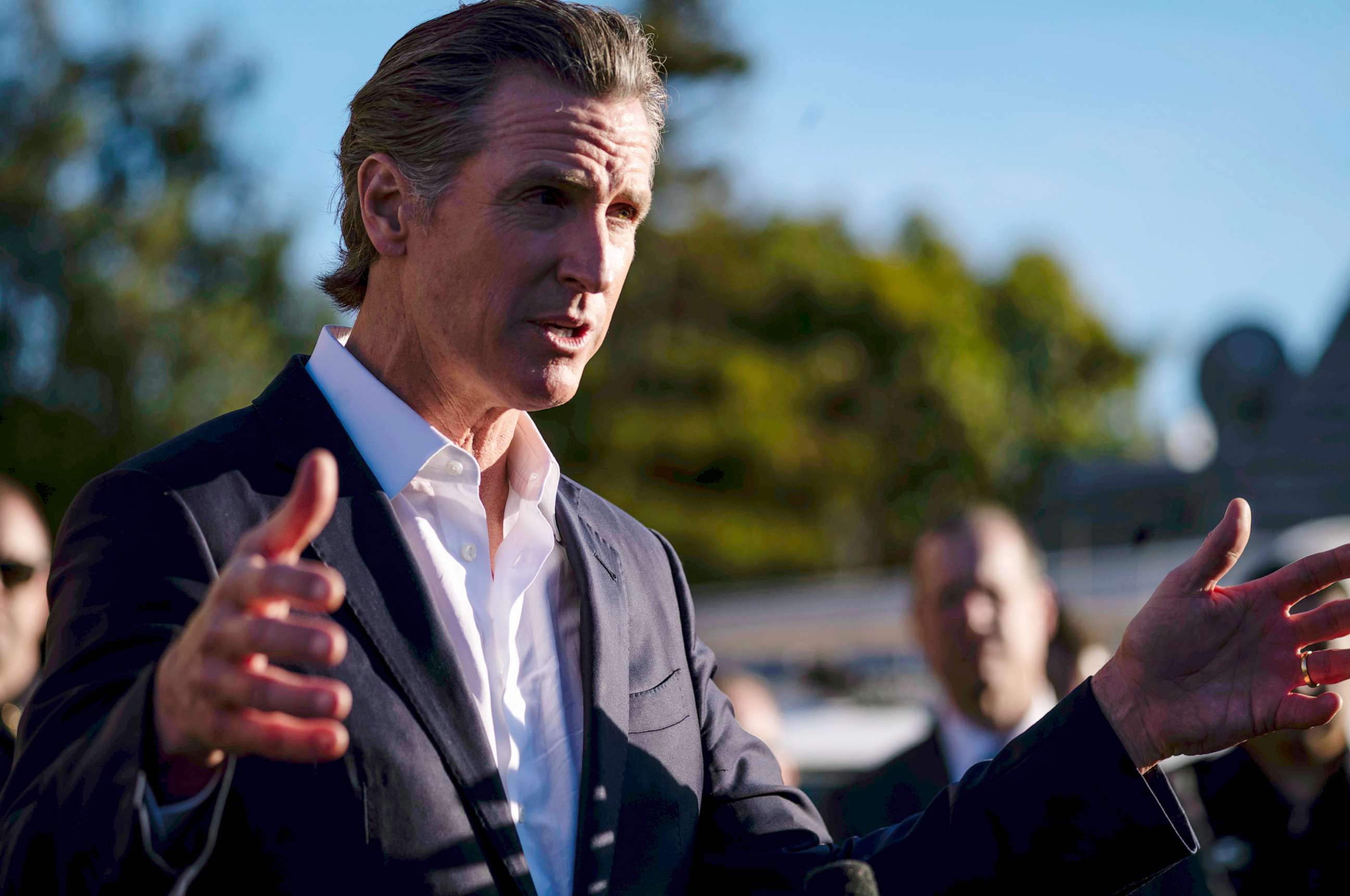
Newsom accused politicians in Washington of "cowering" and giving into gun rights interest groups instead of protecting Americans.
"We’re supposed to be better than that," he said on Tuesday. "We’re supposed to be leading the world, not just responding to these mass crises and expressing damn prayers and condolences over and over and over again."
ABC News' William Hutchinson contributed to this report.




